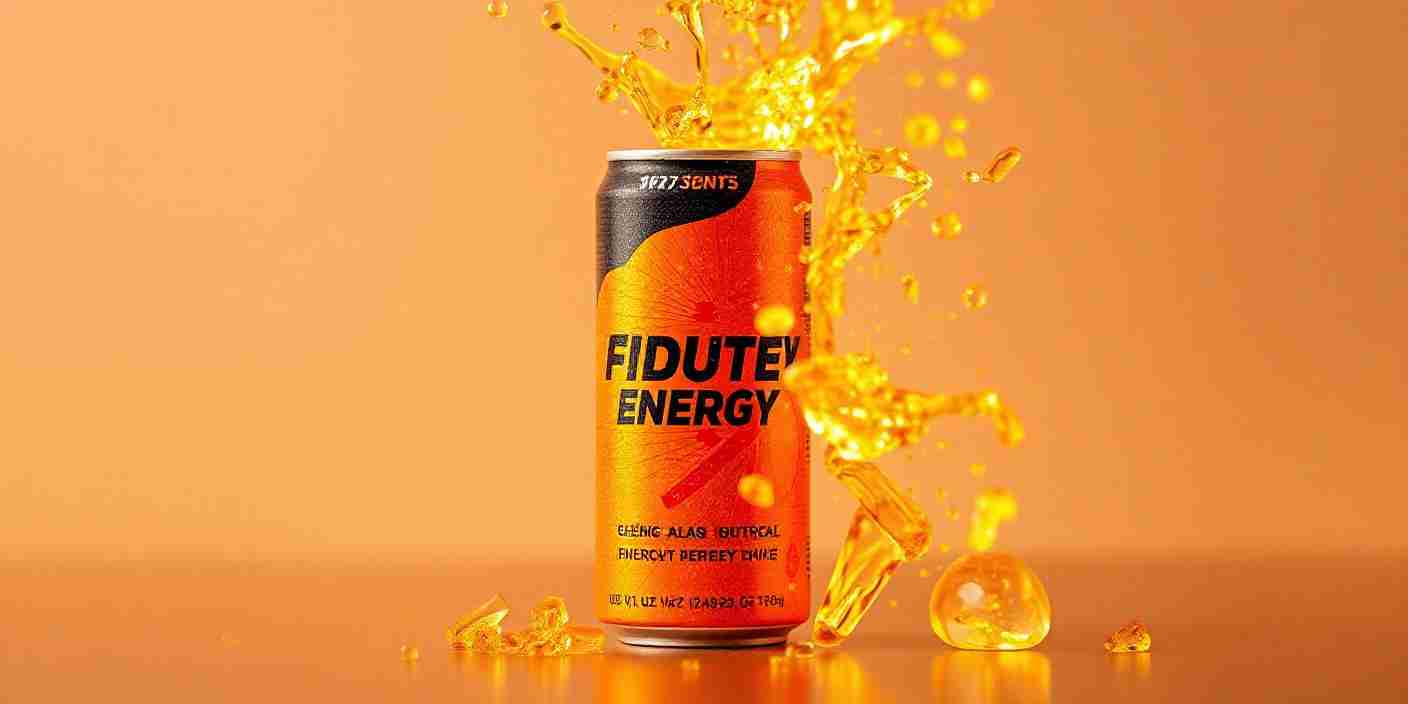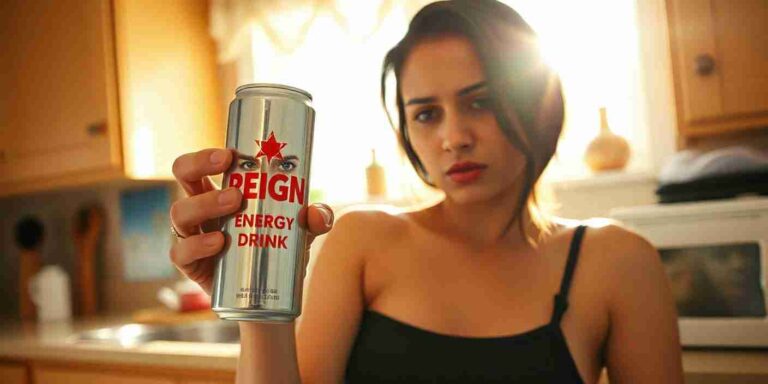What Is The Most Powerful Energy Drink? Top Brands & Health Tips!
The most powerful energy drink on the market is Bang Energy. Packed with a staggering 300 milligrams of caffeine per can, it’s designed to deliver an intense boost when you need it most. But what makes this drink stand out among countless competitors?
With its unique blend of ingredients like BCAAs and electrolytes, Bang not only fuels your workout but also supports recovery without the dreaded crash.
As you explore the world of energy drinks, understanding what truly sets them apart can help you make informed choices that align with your lifestyle and goals.
Whether you’re hitting the gym or powering through a long day at work, knowing which energy drink packs the biggest punch is essential for maximizing your performance.
Key Takeaways
- Bang Energy Leads the Market: Bang Energy is recognized as one of the most powerful energy drinks, boasting 300 mg of caffeine and a unique blend of BCAAs and electrolytes for enhanced performance and recovery.
- Understanding Caffeine Content: The caffeine content in energy drinks varies significantly, ranging from 70 mg to over 500 mg per serving. Moderation is key, with the FDA recommending a daily limit of 400 mg for healthy adults.
- Impact of Sugar Levels: Many energy drinks contain high sugar levels, which can lead to quick energy bursts followed by crashes. Opting for low-sugar or sugar-free alternatives may be healthier.
- Ingredient Awareness: Besides caffeine and sugar, many energy drinks include additional ingredients like vitamins and amino acids that can improve physical performance. It’s essential to consider these when choosing a drink.
- Health Risks Considerations: Excessive consumption of energy drinks can lead to health risks such as anxiety, insomnia, dehydration, and increased heart rate. Always consult with healthcare professionals if you have health concerns regarding stimulants.
- Personal Preferences Matter: When selecting an energy drink, consider your personal tolerance for caffeine and any specific health goals you may have to make informed choices that suit your lifestyle.
Overview of Energy Drinks
Energy drinks are beverages designed to boost your energy and alertness. They often contain caffeine, sugar, and other ingredients that may enhance performance. These drinks appeal to various groups, including athletes, students, and busy professionals.
Caffeine is the most common ingredient in energy drinks. It stimulates the central nervous system, helping you feel more awake.
For example, a standard 8.4 oz can of Red Bull contains 80 mg of caffeine. In contrast, larger cans like those from Rockstar or Monster Energy contain about 160 mg of caffeine per 16 oz can.
People often choose energy drinks based on their needs. Some prefer shots like 5-Hour Energy, which packs a powerful dose of 242 mg of caffeine per 2 oz serving. This concentrated form appeals to those wanting a quick boost without drinking a large volume.
Beyond caffeine, many energy drinks include additional components such as vitamins, amino acids (e.g., BCAAs), and electrolytes. These ingredients aim to improve physical performance and recovery after workouts.
Understanding the key differences among energy drinks helps you make informed choices based on your lifestyle.
Whether you’re gearing up for an intense workout or needing focus during long hours at work, knowing what each drink offers allows you to select the right option for your needs.
Factors That Determine Energy Drink Strength
When choosing an energy drink, it’s essential to understand the factors that contribute to its strength. Two main elements play a significant role: Caffeine Content and Sugar Levels.
Caffeine Content
Caffeine is a primary ingredient in most energy drinks, providing the stimulating effects you seek. The highest caffeine content in some energy drinks can reach up to 505 mg per can or bottle.
In contrast, many popular brands typically have caffeine levels ranging from 70 mg to 200 mg per 16-oz serving.
The FDA recommends a daily caffeine limit of 400 mg for healthy adults, emphasizing the importance of moderation.
Sugar Levels
Sugar also affects the overall strength of an energy drink. Many products contain high sugar levels, with amounts ranging from 21 g to 34 g per ounce.
This amount rivals or exceeds that found in regular soda. High sugar intake can lead to quick bursts of energy but may result in crashes later on.
It’s crucial to read labels carefully and consider both your health goals and your body’s response when selecting an energy drink.
Understanding these factors helps you make informed choices about which energy drink best suits your needs, whether you’re preparing for intense workouts or long hours at work.
Popular Energy Drinks Reviewed
Energy drinks provide a quick boost of energy, often containing high levels of caffeine. Here are some popular options to consider.
Drink 1: Reign
Reign is known for its high caffeine content of 300 mg per serving. This amount ranks it among the strongest energy drinks on the market.
However, due to this high level, it’s crucial to consume it in moderation. Excessive intake may lead to negative health effects, including anxiety and insomnia.
Drink 2: Alani Nu
Alani Nu offers 200 mg of caffeine per can, which is significant but lower than Reign. It contains zero sugar, making it a healthier choice for those avoiding sugar.
The sweetness comes from 2 grams of sugar alcohol and Sucralose, providing flavor without added calories.
Drink 3: Celsius
Celsius presents another option with a notable caffeine kick; however, the exact amount isn’t specified.
Like Alani Nu, Celsius is marketed as a fitness drink and may contain other beneficial ingredients like vitamins and minerals aimed at boosting metabolism along with energy levels.
These drinks vary widely in their formulations and strengths. When choosing an energy drink, consider your tolerance for caffeine and desired health benefits.
Health Considerations
Energy drinks can impact your health, so understanding their effects is essential. Many energy drinks contain high amounts of caffeine, sugar, and other stimulants. These ingredients might provide a quick boost, but they also come with risks.
Caffeine Content
Caffeine is the main ingredient in most energy drinks. For example:
- 5-Hour Energy: Contains 242 mg of caffeine per 2-ounce shot.
- Rockstar Pure Zero: Offers 240 mg per 16-ounce can.
- Amp Energy: Provides 160 mg per 16-ounce can.
- Red Bull Sugarfree: Has 80 mg in an 8.4-ounce can.
Consuming too much caffeine may lead to side effects like anxiety, insomnia, and increased heart rate. Adults should limit their caffeine intake to about 400 mg per day, according to the FDA.
Sugar Levels
Many energy drinks also have high sugar content. Excessive sugar intake contributes to weight gain and increases the risk of diabetes and heart disease.
Some options offer zero sugars or low-sugar alternatives, such as Alani Nu, which contains no sugars at all.
Other Ingredients
Other stimulants like guarana and yerba mate are common in energy drinks. While these might enhance performance temporarily, they may not be suitable for everyone.
You should consult with a healthcare professional if you have pre-existing conditions or concerns about stimulant use.
Hydration
Energy drinks often lead to dehydration due to their diuretic effects from caffeine and other stimulants.
It’s crucial to drink enough water when consuming these beverages, especially during physical activities or hot weather conditions.
Considering these factors helps ensure that you choose energy drinks that align with your health goals while minimizing potential risks associated with high caffeine and sugar consumption.
Conclusion
Choosing the most powerful energy drink requires careful consideration of your health goals and preferences.
With options like Bang Energy, Reign, Alani Nu, and Celsius available, you’ve got plenty to explore. Each brand offers unique benefits depending on caffeine content and sugar levels.
Remember to pay attention to how these drinks affect your body. Prioritize hydration and maintain a balanced approach when incorporating energy drinks into your routine.
By making informed choices, you can enjoy the benefits of enhanced energy while staying mindful of your overall well-being.
Frequently Asked Questions
What is Bang Energy and what makes it unique?
Bang Energy is a popular energy drink known for its unique blend of ingredients, including BCAAs (branched-chain amino acids) and electrolytes. It aims to provide a significant energy boost without sugar, making it a favorite among fitness enthusiasts.
How do energy drinks work?
Energy drinks are designed to increase alertness and stamina by combining stimulants like caffeine with sugars or other energizing ingredients. The caffeine content varies between brands, impacting the overall effectiveness of the drink.
What factors determine the strength of an energy drink?
The strength of an energy drink primarily depends on its caffeine content and sugar levels. Higher caffeine generally leads to increased alertness, while excessive sugar can lead to crashes in energy levels post-consumption.
How does Bang Energy compare to other brands?
Compared to other brands like Reign and Alani Nu, Bang Energy offers a balanced mix of performance-enhancing ingredients with zero sugars. Reign features 300 mg of caffeine per serving, while Alani Nu has 200 mg but no sugar at all.
Are there health risks associated with consuming energy drinks?
Yes, consuming high amounts of energy drinks can pose health risks such as increased heart rate, anxiety, and dehydration. It’s essential to monitor your intake of caffeine and sugar for better health outcomes.
What should I consider when choosing an energy drink?
When selecting an energy drink, consider your health goals; examine the caffeine content, sugar levels, and additional stimulants like guarana or yerba mate, and ensure you’re staying hydrated during consumption.






